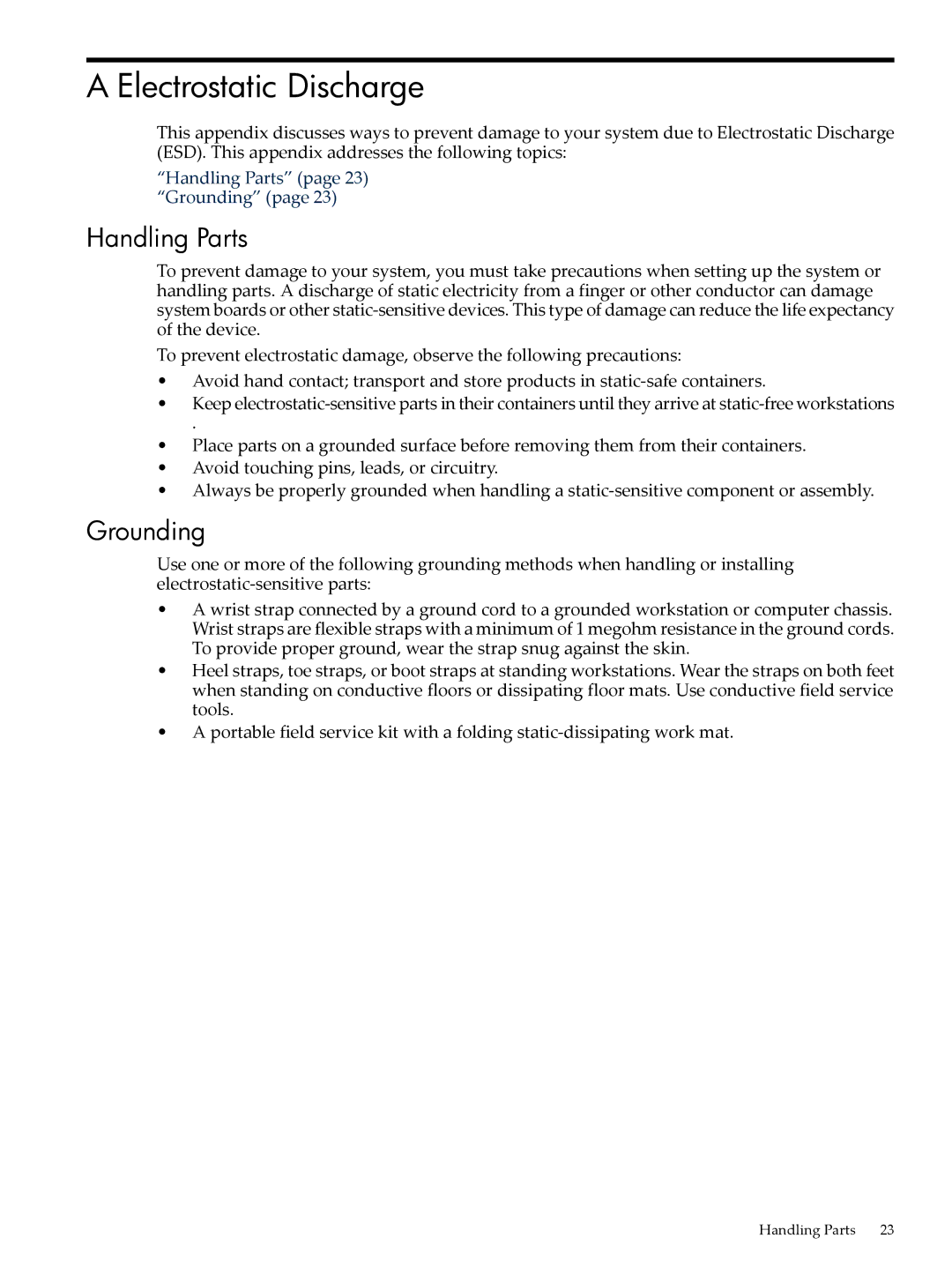A Electrostatic Discharge
This appendix discusses ways to prevent damage to your system due to Electrostatic Discharge (ESD). This appendix addresses the following topics:
“Handling Parts” (page 23) “Grounding” (page 23)
Handling Parts
To prevent damage to your system, you must take precautions when setting up the system or handling parts. A discharge of static electricity from a finger or other conductor can damage system boards or other
To prevent electrostatic damage, observe the following precautions:
•Avoid hand contact; transport and store products in
•Keep
.
•Place parts on a grounded surface before removing them from their containers.
•Avoid touching pins, leads, or circuitry.
•Always be properly grounded when handling a
Grounding
Use one or more of the following grounding methods when handling or installing
•A wrist strap connected by a ground cord to a grounded workstation or computer chassis. Wrist straps are flexible straps with a minimum of 1 megohm resistance in the ground cords. To provide proper ground, wear the strap snug against the skin.
•Heel straps, toe straps, or boot straps at standing workstations. Wear the straps on both feet when standing on conductive floors or dissipating floor mats. Use conductive field service tools.
•A portable field service kit with a folding
Handling Parts | 23 |
